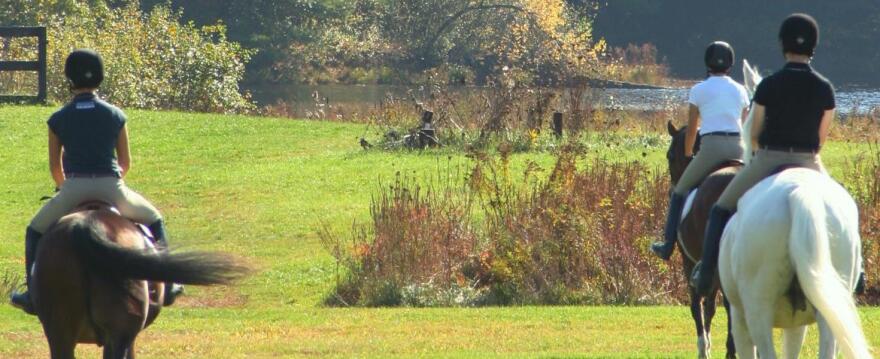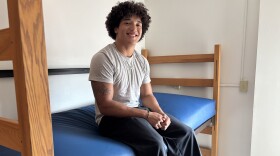It’s a time of transition for the therapeutic riding program at the University of New Hampshire. And its former director is raising concerns about how the school is handling the program’s coursework and its finances, among other changes.
According to their website, the university is redesigning its academic programs in this area: It’s no longer accepting new students for several equine programs, including equine-assisted activities and therapies. Instead, the university says it’s introducing a new animal sciences degree option that “includes equine-specific classes with strong hands-on components.”
“The new program, animal science: equine studies, will officially launch in fall 2023,” university spokesperson Robbin Ray said in an emailed statement.
In a statement provided through the university spokesperson, the equine program confirmed the community therapeutic riding program was paused on June 5. They said about 30 people, on average, receive equine therapy through the community riding program.
“Those community members who have contacted us have expressed interest in being notified when the community equine program is reintroduced, some indicated using locally available private services, others made no indication of their intentions,” they said.
Until recently, Cindy Burke was the director of the therapeutic riding program and taught affiliated classes for the university. Burke said she has been involved in the program since 2002, but she resigned after the university made a number of changes.
Burke said it was clear the university was trying to make changes to the program when she got her course load. In years past, this would include the equine riding program, but that program was absent from her course load in the spring.
She’s concerned that the university’s decision to pause the community riding program will negatively affect both community riders and students.
“The academic program for therapeutic riding cannot continue without the therapeutic riding program,” Burke said.
The community riding program served as the part of the instruction for the coursework she taught. Burke gave the example of one course she taught, describing the community program as the “living laboratory” for the class. For example, she said, the “Equine Assisted Activities and Therapies” class requires students to put in time working for the community riding program.
Burke also said the school moved donations that were targeted for the therapeutic riding program into a general fund. There, any department in the College of Life Sciences and Agriculture could access it.
A university spokesperson confirmed the school moved the money but said it will still be spent in line with donor intent. They said the equine therapy program had been spending less money than it was taking in for several years, and they anticipate spending the money fully by the end of the summer, in part by buying a new horse.
Burke said she was told in February her program’s money was moved to the general fund and that she should spend it in a timely way from there. But, she said purchases for the program can take a while, especially when looking at horses.
“To tell me in February that $27,500 has to be spent on horses before someone else at [the college] spends it on something else and before the money goes away at the end of the fiscal year was impossible,” Burke said.







